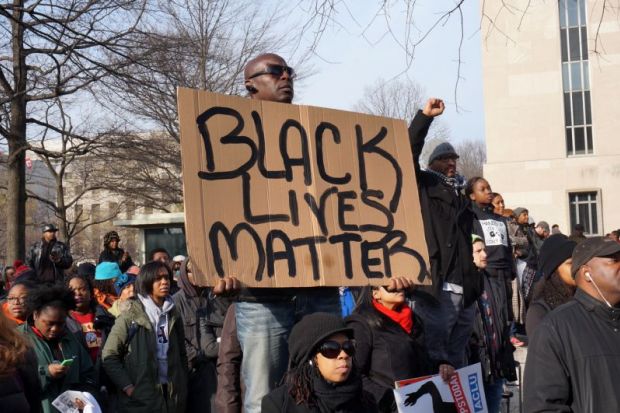Hundreds of black, Asian and minority ethnic academics and university staff have written an open letter calling for racial justice in higher education, claiming that the sector has been “overly optimistic in its assessment of the extent of the problem” and has “failed to seriously engage with the systemic and structural nature of racism”.
More than 300 academics, students and professional support staff who work or have recently worked in UK higher education have signed the letter, published online by Times Higher Education. It was spearheaded by Keston Perry, economics lecturer at the University of the West of England; Richard Itaman, lecturer in comparative political economy and development at King’s College London, and Angelique Golding, a department business manager at Goldsmiths’ Institute for Creative and Cultural Entrepreneurship.
They say that statements from universities indicating their commitment to the Black Lives Matter movement, which have been published in the wake of the killing of George Floyd in the US, “can at best be regarded as tokenistic and superficial” given that racial inequalities remain in the sector.
“The sector has, to date, been overly optimistic in its assessment of the extent of the problem, it has been slow to act and, where action has been taken, it has failed to seriously engage with the systemic and structural nature of racism,” they add.
The letter – which is addressed to education secretary Gavin Williamson, Universities UK, funders of higher education institutions, learned societies and higher education membership bodies – says that the groundswell of protests in the US and the UK “represent a crucial moment for us – as people directly affected by these issues – to call on the sector for help in eliminating racism”.
It lists 17 recommendations, including calls for committees set up to address racism and racial harassment to be led by and made up of those with first-hand experience of these issues; universities to publish by ethnicity data on candidates who have applied for, been shortlisted and successful in securing senior appointments on an annual basis; and funding bodies to make public the number of award and grant applicants by ethnic groups, of these the number who are successful and make public actions to address any disparities.
It adds that “the sector should not be its own arbitrator of racial justice”. It calls on the government to make available ring-fenced funding for the Equality and Human Rights Commission to oversee the implementation of its recommendations and identify any further disparities in experiences and outcomes.
Register to continue
Why register?
- Registration is free and only takes a moment
- Once registered, you can read 3 articles a month
- Sign up for our newsletter
Subscribe
Or subscribe for unlimited access to:
- Unlimited access to news, views, insights & reviews
- Digital editions
- Digital access to THE’s university and college rankings analysis
Already registered or a current subscriber? Login








